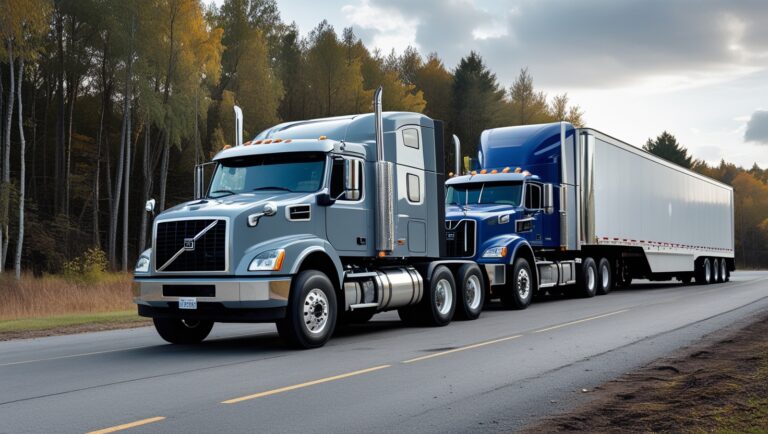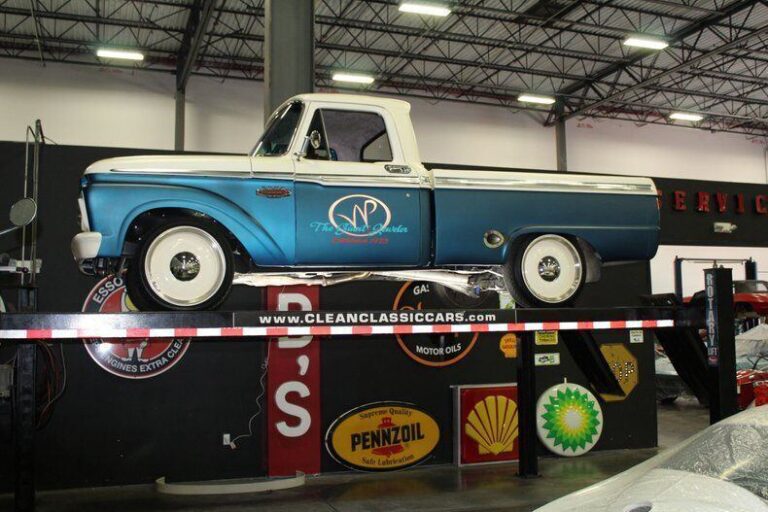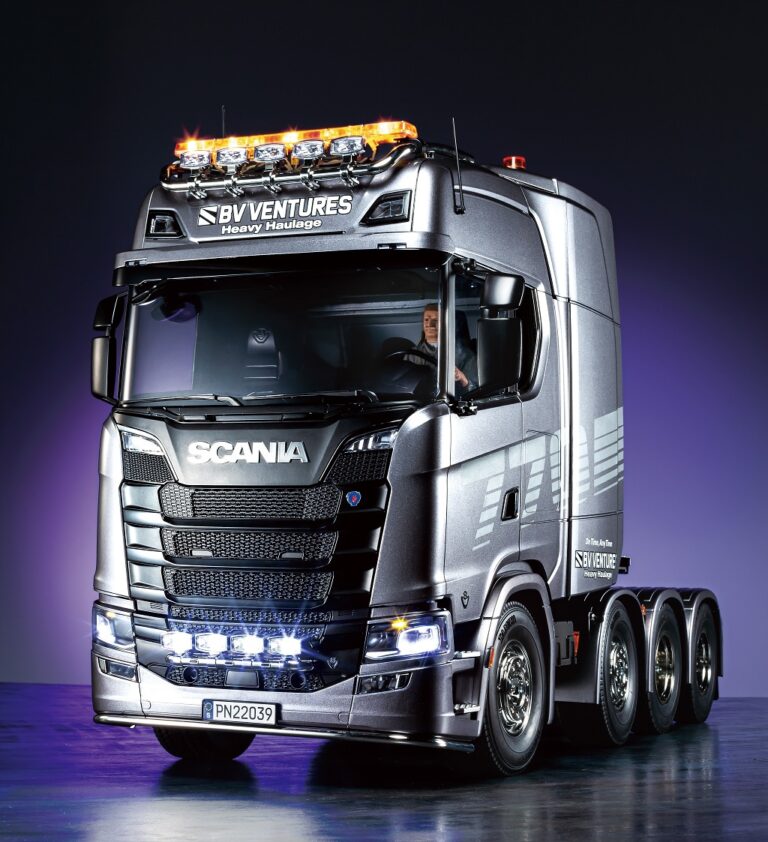Diesel Trucks For Sale: Your Ultimate Guide to Power, Performance, and Value
Diesel Trucks For Sale: Your Ultimate Guide to Power, Performance, and Value cars.truckstrend.com
The rumble of a diesel engine, the promise of immense torque, and the sight of a heavy-duty pickup effortlessly hauling a substantial load – these are the hallmarks that define the allure of diesel trucks. More than just vehicles, diesel trucks are workhorses, adventure companions, and reliable partners for countless individuals and businesses across North America and beyond. When the time comes to purchase one, navigating the market for "Diesel Trucks For Sale" requires a comprehensive understanding of their unique attributes, benefits, considerations, and the buying process itself.
This guide is designed to be your definitive resource, whether you’re a seasoned truck owner looking to upgrade, a business seeking a powerful fleet addition, or a newcomer exploring the unparalleled capabilities of diesel. We’ll delve into why diesel trucks stand out, what to look for when buying, where to find them, and how to make an informed decision that meets your needs and budget.
Diesel Trucks For Sale: Your Ultimate Guide to Power, Performance, and Value
Why Choose a Diesel Truck? Benefits and Advantages
The decision to buy a diesel truck is often driven by a specific set of needs that gasoline-powered alternatives simply cannot meet. Diesel engines are engineered differently, offering a distinct set of advantages that make them a compelling choice for many buyers.
1. Unmatched Towing Power and Torque
This is arguably the primary reason most people opt for a diesel truck. Diesel engines produce significantly more low-end torque than their gasoline counterparts. Torque is the rotational force that gets a load moving, and it’s crucial for towing heavy trailers (RVs, boats, construction equipment) and hauling substantial payloads. This immense pulling power translates into less strain on the engine, smoother acceleration with a load, and more confident driving, especially on inclines.
2. Superior Fuel Efficiency (Especially Under Load)
While diesel fuel often costs more per gallon than gasoline, diesel engines are inherently more fuel-efficient. They extract more energy from each unit of fuel due to higher compression ratios and a different combustion process. This efficiency becomes even more pronounced when the truck is under load, where a gasoline engine would be working much harder and consuming fuel at a higher rate. For those who frequently tow or carry heavy loads, the long-term fuel savings can be substantial.
3. Durability, Longevity, and Reliability
Diesel engines are built to withstand higher pressures and temperatures, leading to a more robust construction. Components like crankshafts, pistons, and connecting rods are typically heavier and more durable. This inherent toughness contributes to a longer lifespan, with many diesel engines easily exceeding 300,000 to 500,000 miles, provided they receive proper maintenance. Their reliability makes them a preferred choice for commercial applications and remote work where breakdowns are costly.

4. Excellent Resale Value
Due to their durability and specialized capabilities, diesel trucks tend to hold their value exceptionally well. A well-maintained diesel truck with high mileage can still command a respectable price in the used market, often outperforming comparable gasoline models. This strong resale value makes them a sound investment over the long term.
5. Availability of Aftermarket Parts and Support
The popularity of diesel trucks has fostered a robust aftermarket industry. Whether you’re looking for performance upgrades, specialized towing equipment, or replacement parts, the availability is vast. There’s also a strong community of diesel enthusiasts and mechanics, making it easier to find expertise and support.
Types of Diesel Trucks For Sale

The market for "Diesel Trucks For Sale" encompasses a wide range of vehicles, each designed for different purposes and capacities. Understanding these categories is crucial for narrowing down your search.
1. Light-Duty Diesel Trucks
These are typically half-ton (1500 series) or smaller trucks that offer a diesel engine option. Examples include the Ram 1500 EcoDiesel, Ford F-150 PowerStroke (now discontinued but available used), and the Chevrolet Colorado/GMC Canyon with the Duramax diesel.
- Purpose: Excellent for those who need better fuel economy and some towing capability without the full-size heavy-duty footprint. Ideal for lighter towing (boats, small campers) and daily driving.
- Benefits: More maneuverable, better fuel economy than heavy-duty trucks, still offer good torque.
2. Heavy-Duty Diesel Trucks
This category includes three-quarter-ton (2500/250/F-250) and one-ton (3500/350/F-350) trucks. These are the quintessential diesel workhorses from manufacturers like Ford (Super Duty), Ram (Heavy Duty), and General Motors (Chevy Silverado HD/GMC Sierra HD).
- Purpose: Designed for serious towing and hauling. Perfect for large fifth-wheel campers, gooseneck trailers, heavy equipment, and commercial applications.
- Benefits: Maximum towing and payload capacity, robust chassis and suspension, powerful engines (e.g., Ford Power Stroke, Ram Cummins, GM Duramax).
3. Medium-Duty and Commercial Diesel Trucks
Beyond the consumer market, diesel engines power a vast array of commercial vehicles. These include chassis cab trucks (F-450/550, Ram 4500/5500) that can be upfitted for various uses (flatbeds, dump trucks, service bodies), and larger vocational trucks.
- Purpose: Strictly for commercial use, often requiring CDL licenses depending on weight.
- Benefits: Unparalleled durability, customizability for specific jobs, high gross vehicle weight ratings (GVWR).
4. New vs. Used Diesel Trucks
- New: Offers the latest technology, full factory warranty, and customization options. Higher initial cost but no history of wear and tear.
- Used: Significantly lower upfront cost, good value retention. Requires thorough inspection and research into maintenance history. Can be an excellent way to get into a capable truck for less.
Key Considerations When Buying a Diesel Truck
Purchasing a diesel truck is a significant investment. Here are critical factors to consider to ensure you make the right choice.
1. Budget: Beyond the Purchase Price
- Initial Cost: Diesel trucks are generally more expensive to buy new than comparable gasoline models. Used prices vary widely based on age, mileage, and condition.
- Fuel Costs: Diesel fuel is often priced higher than gasoline. Factor this into your running costs, especially if you drive frequently.
- Maintenance: While durable, diesel engines can have higher maintenance costs for specific components (e.g., fuel injectors, high-pressure fuel pumps, emissions systems). Regular, specialized maintenance is crucial for longevity.
- Insurance: May be slightly higher due to the vehicle’s value and repair costs.
2. Intended Use and Capacity Requirements
- Towing & Payload: Be realistic about your maximum towing and payload needs. Consult the truck’s specifications (door jamb sticker, owner’s manual) for Gross Vehicle Weight Rating (GVWR), Gross Combined Weight Rating (GCWR), and maximum trailer weight. Don’t just look at the engine; the transmission, axle ratios, and suspension all play a role.
- Daily Driving: Consider the truck’s size and maneuverability if it will be your daily driver. Heavy-duty trucks can be cumbersome in urban environments.
- Off-Roading/Work Site: Look for features like 4×4, higher ground clearance, and robust underbody protection if these are your requirements.
3. Maintenance History and Engine Health (Especially for Used Trucks)
- Service Records: Demand complete service records. This is vital for understanding how well the truck was maintained. Look for regular oil changes (using correct diesel-specific oil), fuel filter replacements, and transmission services.
- Emissions Systems: Modern diesel trucks are equipped with complex emissions systems (Diesel Particulate Filter – DPF, Selective Catalytic Reduction – SCR with Diesel Exhaust Fluid – DEF, Exhaust Gas Recirculation – EGR). These systems are critical for environmental compliance but can be costly to repair if neglected. Ask about their maintenance history and any warning lights related to them.
- Pre-Purchase Inspection (PPI): Always get a comprehensive PPI from an independent, trusted mechanic specializing in diesel engines. They can identify potential issues that might not be apparent during a test drive, such as injector problems, turbocharger health, or transmission concerns.
4. Fuel Economy and Emissions Standards
- Real-World MPG: Manufacturer estimates are often for ideal conditions. Real-world fuel economy can vary significantly based on driving habits, terrain, and load.
- Emissions Regulations: Be aware of local and state emissions testing requirements. Older diesel trucks may be exempt, but modern ones must comply. Ensure all emissions components are intact and functioning.
5. Test Drive and Inspection
- Cold Start: Listen for any unusual noises during a cold start.
- Acceleration and Braking: Ensure smooth power delivery and effective braking, especially under simulated load if possible.
- Transmission Shifts: Check for smooth, timely shifts without hesitation or slipping.
- Steering and Suspension: Pay attention to steering responsiveness, alignment, and any excessive bouncing or clunking from the suspension.
- Interior and Exterior: Check for rust (especially on the frame), signs of accident damage, and the condition of the interior features.
Where to Find Diesel Trucks For Sale
The search for your ideal diesel truck can begin in several places, each offering different advantages.
1. Dealerships (New and Used)
- Pros: Wide selection, often certified pre-owned options with warranties, financing available, trade-in options, professional sales staff.
- Cons: Higher prices, sales pressure.
2. Online Marketplaces
- Pros: Huge inventory, easy to compare models and prices, detailed listings with photos. Popular sites include AutoTrader, Cars.com, CarGurus, and specialized truck marketplaces.
- Cons: Can be overwhelming, need to verify seller credibility, trucks may be located far away.
3. Private Sellers
- Pros: Often lower prices than dealerships, potential for direct negotiation, can get a more detailed history from the owner.
- Cons: No warranty, "as-is" sale, more legwork for inspections and paperwork, higher risk of undisclosed issues.
4. Auctions
- Pros: Potential for significant savings, wide variety of vehicles.
- Cons: High risk, "as-is" sale with no test drive, often geared towards experienced buyers or dealers.
5. Specialty Diesel Shops
- Pros: Knowledgeable staff, often offer trucks that have been inspected or reconditioned by diesel experts, sometimes come with a limited warranty.
- Cons: Limited inventory, may be higher priced than private sales.
The Buying Process: Tips for a Successful Purchase
Once you’ve identified potential candidates, here’s how to navigate the buying process.
- Thorough Research: Understand common issues for specific models and years you’re considering. Read owner forums and reliability reviews.
- Contact Seller and Ask Questions: Before visiting, inquire about maintenance records, reason for selling, any known issues, and service history.
- In-Person Inspection: Examine the truck in daylight. Check for fluid leaks, tire wear, rust, body damage, and interior condition.
- Test Drive: Drive it on various roads (city, highway, inclines) and listen carefully to the engine, transmission, and suspension. Test all electrical components.
- Pre-Purchase Inspection (PPI): This is non-negotiable for a used diesel. A professional mechanic can spot costly problems you might miss.
- Negotiation: Be prepared to negotiate, especially with private sellers. Have your research on comparable sales ready.
- Financing & Insurance: Secure financing pre-approval if needed. Get insurance quotes before finalizing the purchase.
- Paperwork: Ensure all titles, registrations, and sales agreements are correctly completed and transferred. Understand any remaining warranty details.
Representative Price Table for Diesel Trucks For Sale (Illustrative Estimates)
Prices for "Diesel Trucks For Sale" vary widely based on make, model, year, mileage, condition, features, and region. This table provides illustrative estimates to give you a general idea. Always conduct your own research for specific models.
| Truck Type / Condition | Age / Mileage Range | Estimated Price Range (USD) | Key Factors Influencing Price |
|---|---|---|---|
| New Light-Duty Diesel | Current Model Year | $45,000 – $75,000+ | Trim level, options, brand, region |
| New Heavy-Duty Diesel | Current Model Year | $60,000 – $100,000+ | Trim level, options (e.g., dually), brand, region |
| Used Light-Duty Diesel | 1-3 years old, <50k miles | $35,000 – $55,000 | Condition, specific model/engine, features |
| 4-7 years old, 50k-120k miles | $25,000 – $40,000 | Maintenance history, rust, emissions system health | |
| 8-12+ years old, >120k miles | $15,000 – $30,000 | Engine health, major component replacement, overall condition | |
| Used Heavy-Duty Diesel | 1-3 years old, <60k miles | $45,000 – $70,000 | Trim level, dually/single rear wheel, options |
| 4-7 years old, 60k-150k miles | $30,000 – $55,000 | Emissions system condition, major repairs, service records | |
| 8-12+ years old, >150k miles | $20,000 – $40,000 | Engine/transmission health, rust, aftermarket modifications | |
| Used Commercial/Medium-Duty | Varies widely based on upfit and condition | $25,000 – $100,000+ | Type of body, mileage, hours, previous commercial use |
Note: Prices are highly variable and subject to market fluctuations, regional demand, and the specific features/condition of each individual truck.
Frequently Asked Questions (FAQ) About Diesel Trucks
Q1: Is diesel fuel more expensive than gasoline?
A1: Typically, yes. Diesel fuel prices are often higher per gallon than regular gasoline, though this can fluctuate based on global oil markets and local supply/demand. However, diesel engines are generally more fuel-efficient, especially when towing or hauling, which can offset some of the per-gallon cost difference.
Q2: Are diesel trucks more expensive to maintain?
A2: Maintenance intervals for diesel trucks can sometimes be longer (e.g., oil changes every 10,000-15,000 miles vs. 5,000-7,500 miles for gas). However, when maintenance is required, parts and labor for specialized diesel components (like fuel injectors, high-pressure fuel pumps, or emissions system repairs) can be more expensive than for gasoline engines. Regular, proactive maintenance is key to minimizing long-term costs.
Q3: What is DEF, and do I need it?
A3: DEF stands for Diesel Exhaust Fluid. It’s a non-toxic liquid used in Selective Catalytic Reduction (SCR) systems in most modern diesel trucks (roughly 2010 models and newer). DEF is injected into the exhaust stream to convert harmful nitrogen oxides into harmless nitrogen and water. Yes, if your truck requires DEF, you must keep the DEF tank filled, or the truck’s performance will be limited or it will not start.
Q4: How long do diesel engines last?
A4: With proper and consistent maintenance, many diesel engines are known to last significantly longer than gasoline engines, often exceeding 300,000 to 500,000 miles. Some well-maintained commercial diesels can even go over a million miles. Their robust construction contributes to their longevity.
Q5: Can I tow more with a diesel truck than a gasoline truck?
A5: In most cases, yes. Diesel engines produce substantially more torque at lower RPMs compared to gasoline engines, which is ideal for getting heavy loads moving and maintaining speed on inclines. This superior torque translates directly into higher towing and payload capacities for diesel trucks of comparable size.
Q6: Are diesel trucks good for daily driving?
A6: Light-duty diesel trucks (like the Ram 1500 EcoDiesel) can be excellent daily drivers, offering good fuel economy and comfortable rides. Heavy-duty diesel trucks, while capable, are larger, heavier, and can be less maneuverable in city traffic or tight parking spots. Their ride quality is often stiffer due to their heavy-duty suspension, which is designed for hauling.
Conclusion
The market for "Diesel Trucks For Sale" offers a diverse landscape of powerful and durable vehicles, each promising years of reliable service and unmatched capability. From the immense torque and superior fuel efficiency under load to their legendary longevity and strong resale value, diesel trucks represent a compelling investment for those with demanding needs.
By carefully considering your budget, intended use, and the critical factors of maintenance and engine health, you can confidently navigate the buying process. Whether you opt for a brand-new heavy-duty hauler or a well-maintained used light-duty workhorse, a diesel truck is more than just transportation; it’s a partner designed to tackle the toughest jobs and embark on the most ambitious adventures. With the right research and a thorough inspection, your journey to diesel ownership will be a rewarding one.







